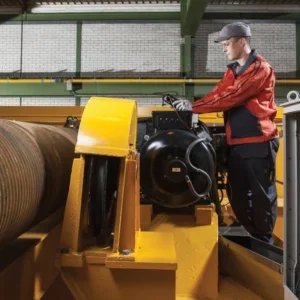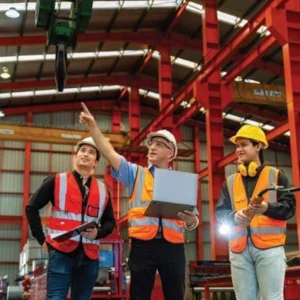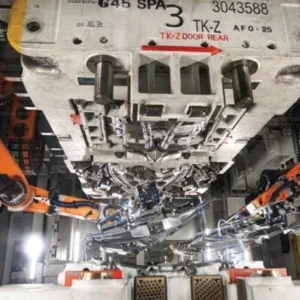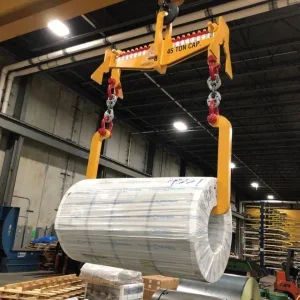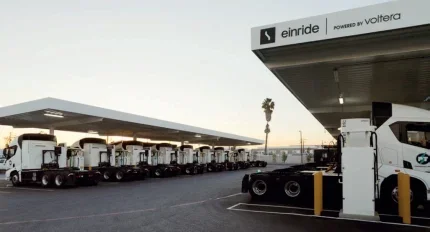
Einride freight mobility company has opened its first US Einride Smartcharger Station in Lynwood, California in Los Angeles County. With 65 chargers and capacity to charge up to 200 vehicles a day, the site is the largest operational charging site for electric heavy duty freight in North America, representing a landmark step for charging infrastructure in the US.
The site was built in collaboration with Voltera, developer and owner of charging infrastructure for zero-emission vehicle fleets, near the Ports of Los Angeles and Long Beach along the I-710, which handles 29% of all containerized international waterborne trade in the US, the site will ensure electric fleets integrate into dayto- day shipping operations, while reducing congestion and driver wait times.
The charging station currently serves Einride’s connected electric fleets, including routes for global shipping giant A.P. Moller – Maersk, eventually expanding the station to other customers.
“The launch of Einride’s first Smartcharger Station in the US marks a momentous stride in establishing digital, electric freight as an important enabler to a more resilient US freight system. This facility will enable a key region to fast track to electric, given its proximity to the Port of LA, one of the world’s busiest container ports and a driver of the US economy,” said Robert Falck, CEO/founder, Einride.
“Our team was able to get Einride’s Lynwood site permitted, built, energized and operational in under 18 months—in the world of charging infrastructure, that’s pretty remarkable,” said Matt Horton, CEO, Voltera. “Our team learned a lot from this project that will help inform and guide our continued build-out of zero-emission vehicle infrastructure nationwide.”
Beyond enabling trucks to recharge in between shipments, Einride’s Smartcharger Station offers a truck driver lounge providing information such as charge status, remaining time, power output and performance. The station is integrated with Einride Saga, the intelligent freight operating system that provides AI-powered data insights and powers the full Einride ecosystem. This integration allows Einride to provide customers with real-time updates on demand, location, timing, and utilization of charging infrastructure thus unlocking scalable efficiencies.
The unveiling of the Lynwood Smartcharger Station marks a significant milestone in Einride’s mission to revolutionize freight transportation. The location is the first of many the company plans to build throughout the country and will serve a critical function in installing capacity to service the region connecting the ports of Los Angeles and Long Beach. Future stations are being pursued on both the West and East coasts, with construction to begin on new sites later this year.
DP WORLD
DP World has designed an industry-first solution based on using 53-foot intermodal containers with racking systems to transport finished vehicles by rail from Mexico to the United States and Canada.
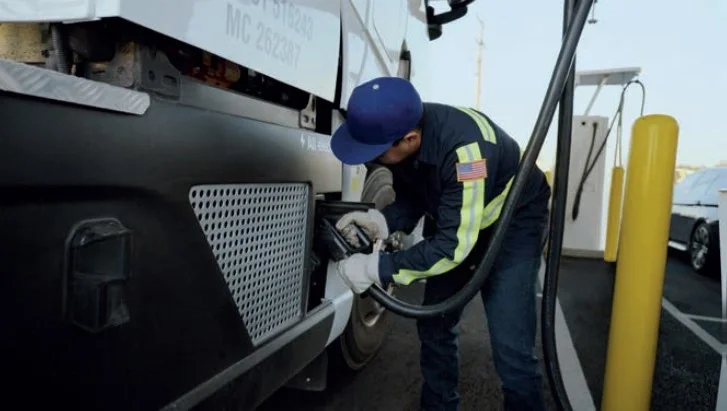
Since June, DP World has provided a 53-foot intermodal container solution to transport cars via rail from Mexico to the United States and Canada. The service is based on loading finished vehicles into containers directly at the factories in Mexico or at designated stuffing yards close to the manufacturing hubs. The containers are then trucked to intermodal rail ramps and moved by rail to destinations like Los Angeles, Chicago, Detroit and Toronto.
At destination, the containers are trucked from the rail ramp to designated yards where the cars are unloaded and trucked to the dealerships. Door to door transits range from 8-14 days, depending on the route. It is estimated the service will enable an additional 30,000 finished vehicles to be transported between the trading partners in 2024.
Traditional 40-foot containers typically house a maximum of four cars, but the 53-foot-long containers can accommodate up to six vehicles, enhancing efficiency whilst reducing costs for OEMs. DP World is the only logistics company currently providing the intermodal 53-foot container solution for finished vehicles.
In 2023, Mexico surpassed China to become the US’s top trading partner, largely thanks to a burgeoning crossborder relationship based on Mexico’s growing manufacturing sector, particularly in automotive. This was bolstered by the 2020 United States-Mexico-Canada Agreement (USMCA).
DP World’s ‘cars in containers’ comes as the automotive logistics industry in North America continues to face challenges caused by ro-ro and multilevel railcar capacity shortages, fueling the need for alternative outbound solutions.
It is estimated DP World’s service will enable an additional 30,000 cars to be transported between trading partners in 2024. Since the beginning of 2024, the company has already transported over 5,000 cars across the Mexico–US border for American and Japanese based OEMs with manufacturing in Mexico.
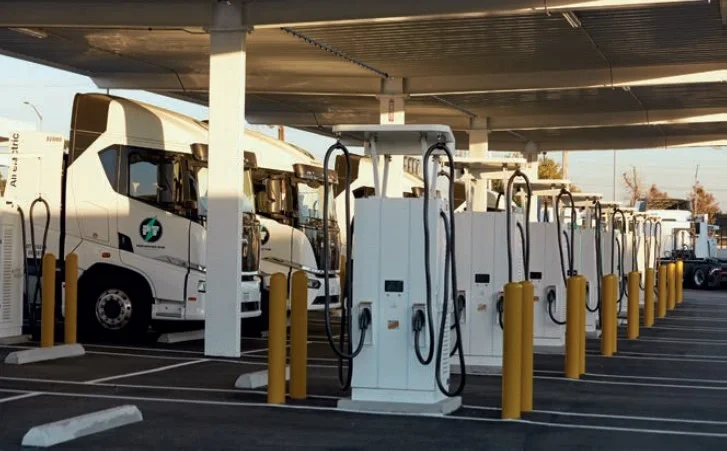
“Our extensive experience shipping cars in containers worldwide, the large racking fleet we can deploy globally within weeks, and our expert teams and hyper focus on quality and service have enabled DP World to provide this unique solution in a challenging environment. Our initial volume shipments this year have proven concept that the 53-foot intermodal solution is a viable alternative during times when traditional capacity is tight, so we decided to officially offer the program to the wider market,” said Christoph Seitz, global VP, Finished Vehicles, DP World.
KALMAR TERMINAL TRACTOR
Kalmar has agreed to supply three TR618i heavy terminal tractors to Uniport, scheduled to be delivered during Q4 of 2024.
Founded in 1980 as Unicoop, Uniport Livorno is in the Port of Livorno, Tuscany. It is one of Italy’s largest seaports and handles a variety of vessel types including RoRo ferries, cruise ships and various types of cargo vessels. The fleet at Uniport Livorno has included Kalmar T2i terminal tractors for a number of years.
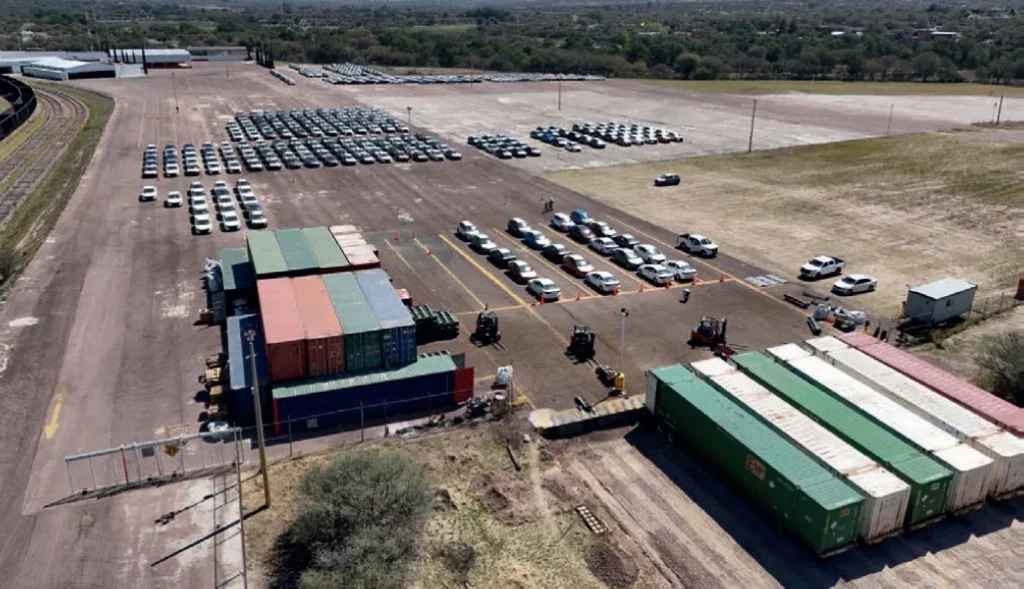
“We are very pleased to continue our partnership with Kalmar. The new heavy terminal tractors will play a vital role in achieving our business growth goals and allow us to continue to provide safe, high- quality and reliable service for our many customers,” said Jari Defilicaia, president, Uniport Livorno.
Stefano Vero, solutions sales representative, Kalmar Italy added: “This agreement demonstrates our commitment to listening closely to our customers’ needs and delivering solutions that match them perfectly. The reliability of our terminal tractors and the quality of our after-sales service together with our ability to deliver tailored solutions have all played an important part in securing this order.
“We look forward to continuing our partnership with Uniport Livorno long into the future.”
Kalmar has also concluded an agreement with UK-based integrated road and rail freight logistics provider, Maritime Transport, to supply eight Kalmar Eco reachstackers, with the final of two deliveries expected in Q3 2025.
Maritime Transport, founded in 2011, employs 3000 personnel across 41 sites including eight strategic rail freight terminals. It operates the UK’s largest fleet of container-handling equipment, including 10 Kalmar Eco reachstackers and two Kalmar straddle carriers.
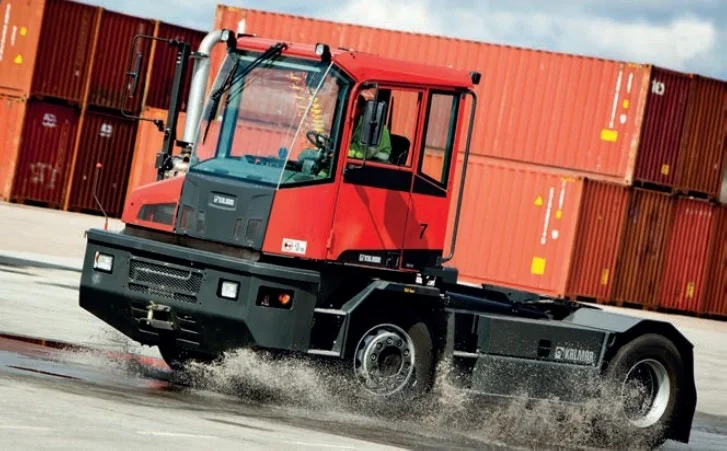
Two of the reachstackers will be deployed at the company’s rail facility in Wakefield, and six at Hams Hall Rail Freight Terminal close to Birmingham, England, incoporating Kalmar’s Insight Fleet Management Software (FMS).
“Our existing Kalmar Eco reachstackers have been delivering significant fuel and cost savings, and we have been very satisfied with their reliability. On average, we are achieving fuel savings of five litres per hour. With Kalmar Care, we gain extra peace of mind in terms of reliability and availability, both critical aspects for maintaining the high-quality service that our customers demand. Furthermore, Kalmar Insight will allow us to improve visibility over equipment status and improve maintenance planning, scheduling and cost predictability,” said Tom Glenn, National plant manager, Maritime Transport.
WALLENIUS WILHELMSEN
Wallenius Wilhelmsen has entered into a definitive agreement to sell Melbourne International RoRo & Auto Terminal Pty Ltd (MIRRAT) for AUD 332.5 million to Australian Amalgamated Terminals, a wholly owned subsidiary of Qube Holdings, Australia’s largest logistics provider.
Wallenius Wilhelmsen will continue to utilize MIRRAT following the transaction, ensuring services to its customers will not be impacted by the sale. “MIRRAT has been incredibly successful both commercially and financially, and the sale demonstrates the values created in our logistics business. As we continue to develop our integrated offering to customers, we believe the terminal’s independence and open access can be even better developed under a new and independent ownership. We will continue to be a happy customer of MIRRAT and work with the strong team there,” said Lasse Kristoffersen, president/ CEO, Wallenius Wilhelmsen.
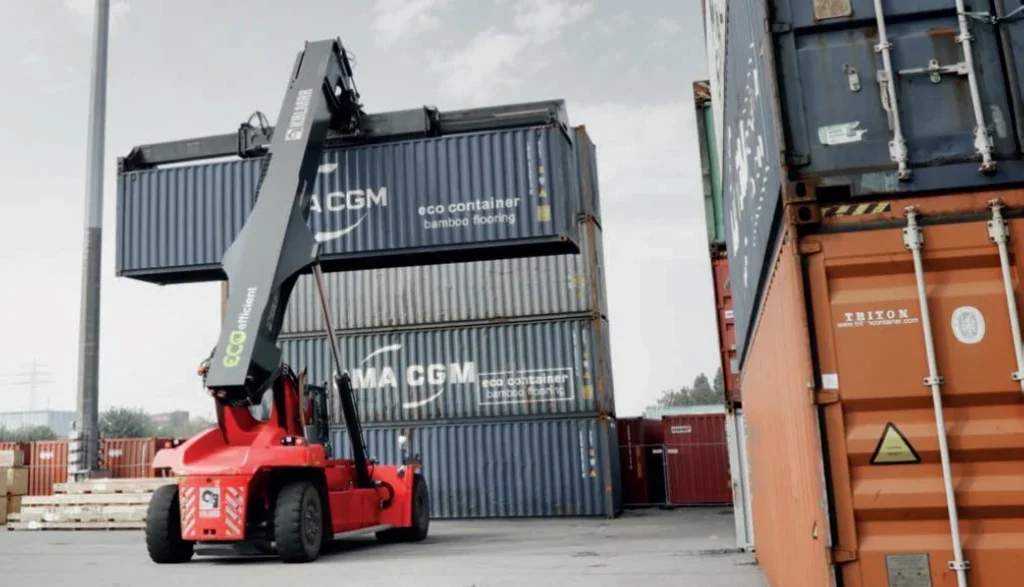
“The MIRRAT-team has done a great job, developing the only dedicated rollon, roll-off terminal, building a robust and customer-centric operation serving multiple shipping lines.”
Wallenius Wilhelmsen remains firm in its commitment to Australia as a critical market for shipping and logistics customers and is continuously looking for opportunities to expand its global integrated logistics offering.
KONECRANES
Konecranes has handed over eight hybrid Konecranes Noell Straddle Carriers to Copenhagen Malmö Port (CMP), intended for the new container terminal in Copenhagen. The parts were delivered to CMP in Q4 last year and have been assembled and tested on-site at the current container terminal.
Next year, the existing container terminal will be relocated a few kilometers to a new and better location in Ydre Nordhavn. By & Havn, one of CMP’s owners, is the developer of the container terminal, while CMP is responsible for the equipment and for operating the terminal, which will play a crucial role in regional development, supplying the growing Copenhagen capital area and the rest of Zealand with goods and commodities and catering to the export needs of businesses in the region.
Having reduced fossil CO2 emissions by 68% since 2020, CMP is well on its way to providing fossil-free container goods handling.
“The new straddle carriers represent a significant step toward CMP’s goal to achieve climate neutrality in our operations by 2025. These machines run on fossilfree HVO* 100 biodiesel instead of fossil diesel and utilize modern hybrid electric technology, consuming significantly less fuel than previous equipment. With these new machines, efficiency and productivity will improve, meeting our customers’ demands. We are delighted that Konecranes has fulfilled the mission and delivered the straddle carriers promptly, allowing us to use them already today,” sai Povl Dolleris Røjkjær Ungar, COO, Copenhagen Malmö Port.
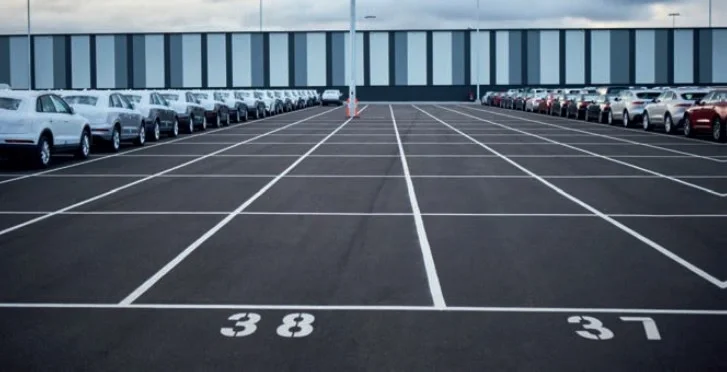
The straddle carriers can lift containers 1-over-3, unlike the ones currently used at the existing terminal, which lift 1-over- 2, which means more containers can be stored in the same space.
Hubert Foltys, head of Konecranes Straddle Carrier business, said CMP has set the bar high in terms of energy consumption and emissions.
Konecranes will also deliver two electric Ship-to-Shore cranes to CMP for the new terminal in 2025.
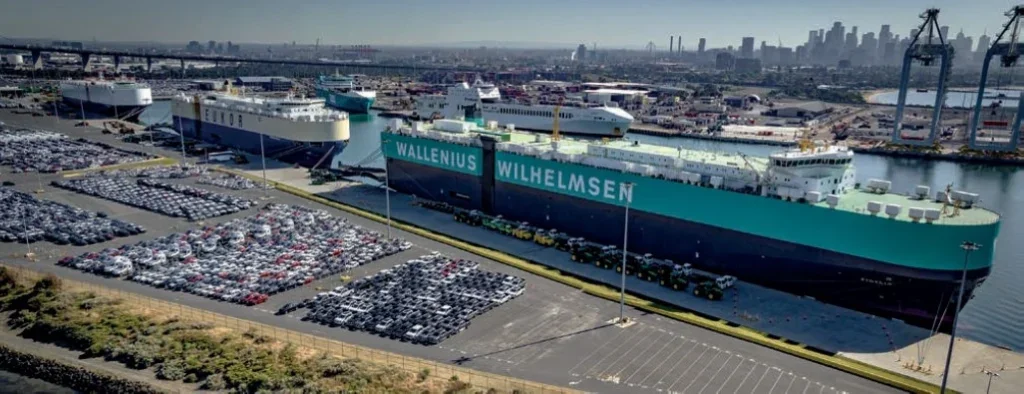
In other news, due to growing demand for low-carbon solutions, Konecranes has introduced a heavy-duty version of its flagship E-VER electric forklift for lifting capacities of 18-25 tons. The new range of lift trucks is part of Konecranes commitment to power up for the future and electrify its entire lift truck fleet by the end of 2026.
Konecranes says its E-VER electric forklift has been making waves in lift truck markets with intense customer interest and excellent feedback. Now an increase in capacity to 18-25 tons allows it to add significant strength to an already innovative system design, giving the E-VER wider versatility for tough applications in heavy industries such as steel, mining and ports.
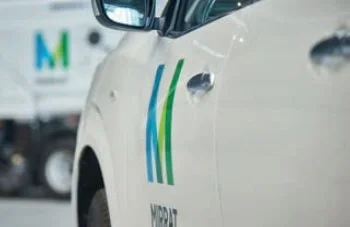
“Higher capacity on the E-VER is the next step on the road to zero tailpipe emissions across all of our lift trucks portfolio. As the global market transitions to carbon neutrality, an even broader environmental responsibility is clear. We have a product road map to deliver the right products at the right time, paving the way to a decarbonized and circular world by eliminating emissions in the entire value chain from production to usage and eventually enabling repurposing and efficient recycling,” said Jeffrey Stokes, director, Product and Technology Management, Lift Trucks, Konecranes.
The 18-25t Konecranes E-VER is intended for heavy-duty industrial applications, with low energy consumption and zero tailpipe emissions. Manufactured with clean energy, the lithium-ion (Li-ion) battery pack fuels the truck’s electric motors.
Easily adaptable to the local power grid, it allows fast charging under an hour and top-ups from braking energy during busy work shifts, and slower charging when not in use. A combination of high voltage and low current reduces energy consumption and losses, allowing the truck to use up to 90% of available energy. When no longer able to hold enough charge to run the motors, the battery can be repurposed as a power reserve at charging stations, or a backup power supply if regular sources fail. At the end of its useful life cycle, Li-ion batteries can be taken apart for recycling.
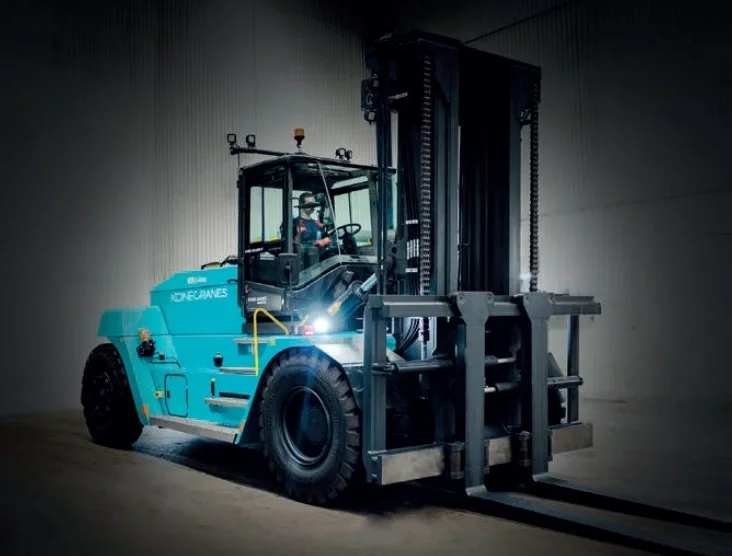
Optimized weight distribution gives the Konecranes E-VER electric forklift smooth, reliable operation and easy maneuverability in all kinds of demanding industrial environments. Powerful motors lift fast and accelerate quickly, even when fully loaded on a slope. Cabin ergonomics lower noise and vibrations and offer the operator a wide, unobstructed view of the work area, increasing comfort and safety. The truck is equipped with safety features, including a battery management system (BMS), a thermal management system (TMS) that controls the battery and always keeps it at the right temperature, and a protective frame around the battery to prevent physical damage in the event of a collision. Redundant sensors throughout the machine provide information for faster analysis and safer functioning.


